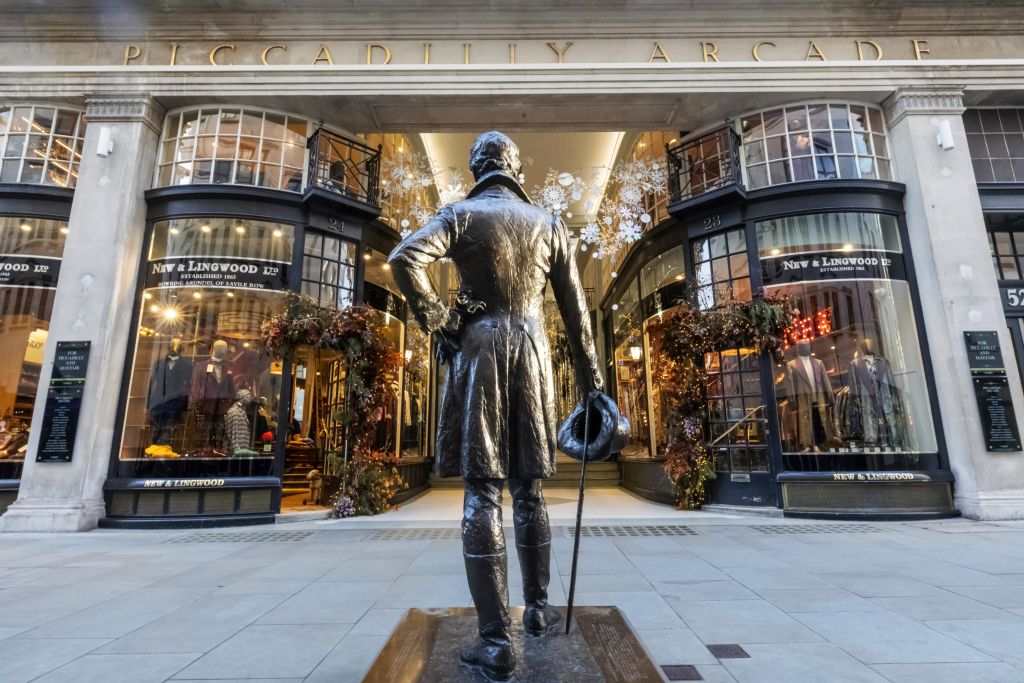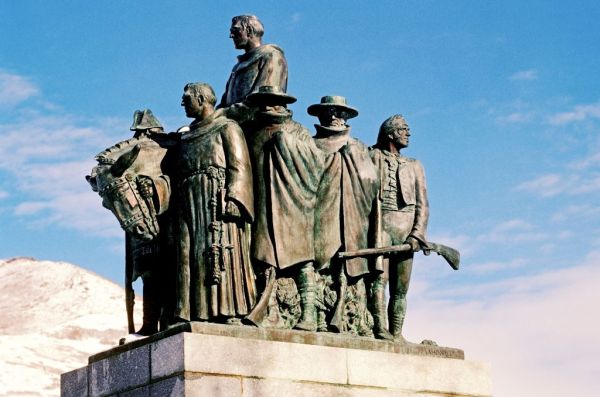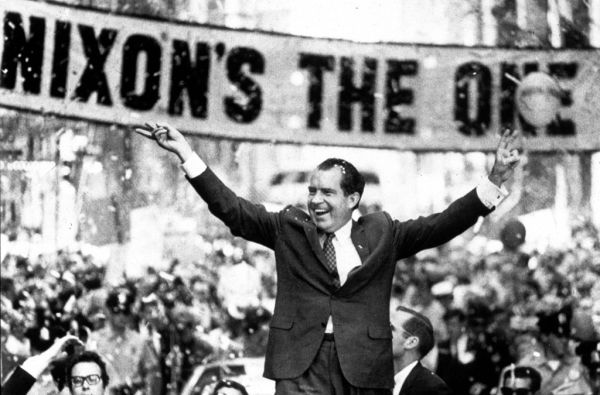One summer, faced with four weeks of boring swim lessons at the municipal pool, my best friend and I came up with a plan to alleviate the tedium. We would not be the pedestrian, Pennsylvanian Clare and Caroline; we would be Jessica and Justine, exchange students visiting from France. Our assumed identities likely fooled few, but for four weeks we dazzled at our own reflected glamour. We babbled chic gibberish at each other, spouted meretricious facts about Paris, and maintained a thick Pink Panther accent while learning the breaststroke.
Convincing anyone soon became beside the point: Being Jessica and Justine was an end in itself. We felt our superiority, we pitied the pauvre enfants Americaines. Quelle provincial! Such is the heady power of self-creation, of becoming the arbiter and efficient cause of what others see rather than passively experiencing their gaze.
The subjects of Tara Isabella Burton’s latest sociological, theological, historical romp all enjoy and exploit this powerful process of self-creation, though on a grander and (mostly) less ridiculous scale. Her book Self-Made: Creating Our Identities From Da Vinci to the Kardashians begins with Renaissance artist Albrecht Dürer and ends with the titular pop culture phenoms. In between, Burton surveys personalities as big as Frederick Douglass, P.T. Barnum, Oscar Wilde, and Clara Bow, to list only a few. Though seemingly unrelated, each of the characters in this murderer’s row of modern achievement and eccentricity is united by the power of fashioning his or her own identity.
Burton is more interested in the carnival of personalities that populate her narrative than in an aggressively conceived or exhaustively argued thesis. She has an eye for tableau and an ear for anecdote. As the book trips along from Gabriele D’Annunzio’s fantastic, highly illegal, nationalistic utopian city state, on to a 1970s California family who starred in one of America’s first reality TV programs (in hopes of becoming “West Coast Kennedys,” of all things), Burton combines the heft of meticulous research with the engaging lightness—and slight salaciousness—of a good beach read.
But there is a thesis in Self-Made that loosely structures this tour of history. The human person in the Middle Ages, Burton contends, was as fixed in his or her social sphere as the stars in the firmament. Identity comprised a set of concrete social facts: family, religion, occupation, village. It was revealed by God and constituted by where he had placed you. In the gorgeously taxonomizing medieval mind, a person was less a discrete phenomenon than a particular part of a whole. To question your place within the framework made as much sense as for a bolt to decide it was really a screw.
This framework persisted, in Burton’s telling, until the Renaissance, when it became possible for some to self-fashion their identity. “Genius” became a special class of person, and those lucky few endowed with it could self-anoint themselves aristocrats. With this first crack in the dyke, there was no going back.
Over time, two competing visions of self-creation spread, an old world account and a new world variant. The old world account was aristocratic, and sought to transpose the privileges of the old feudal order onto a new aristocracy of inborn genius through a kind of throwback logic. It believed in the divine right of kings (so to speak) but held—as in the case of the biblical David—that kings (or geniuses) are made by the mysterious elections of divine favor, as likely to descend upon a humble shepherd as a hereditary prince.
By contrast, the new world variant was entrepreneurial, less fixated on traditional aristocratic concerns of art, beauty, and martial glory. The new world’s paradigmatic slogan was, in the words of Frederick Douglass: “Work! Work! Work!” Burton adds of Douglass, “Work—the active, careful, willful cultivation of the self, was what made possible the stellar rise of America’s self-made men, ‘of whatever variety of race or color.’ It was, he heavily hinted, key to his own success.”
The new world mode of self-creation did not merely hold that the king can come from anywhere; it believed that anyone can be a king if he hustles hard enough. This tradition encompasses not only the radical striving of Douglass’ ascent from slavery, but the Gilded Age robber barons, the spiritual vaporings of New Thought self-help guides, and the indefatigable grifts of P.T. Barnum.
Such a sprawling narrative inevitably oversimplifies matters at times. The self-made man, for instance, did not spring up as a radically new archetype for the first time during the Renaissance. Marcus Tullius Cicero arguably has as good a claim to Burton’s description as any other of her subjects. But by identifying a strand of self-making that runs through history, Burton is able to tease out its assumption, its conflicts, and above all its inconsistencies.
For instance, while many of the self-makers doubted constituted hierarchies, their project was by no means egalitarian. In Regency England, for example, the male fashionista Beau Brummell dared to scorn Prince George Augustus Frederick, the regent prince of Wales (Prinny to his associates). Despite a previous falling out between the two, the prince once attended a ball hosted by Brummell. Their mutual friend, the Lord Alvanley, tagged along. Burton writes:
Finally, he came to Brummel. “Seemingly” one contemporary recounts the scene, “as if [Prinny] did not know who he was or why he was there … without bestowing upon him the slightest symptom of recognition passed on.” But Brummell was not to take the snub lightly. “Alvanley,” he loudly asked, in the cool drawl that had already become a hallmark of his public personality, “who’s your fat friend?” The cut silenced the room.
The grounds on which Brummell could successfully pull this stunt off—taste and style—were at least as ruthlessly exacting and exclusionary as the rules he challenged. It would be a stretch to say they were more hierarchical—we are speaking, after all, of a hereditary monarchy—but they were arguably more disorienting. There were no limits to the heights of your status in the regime of taste; but there was also no guaranteed floor, and no standard or structure equally within reach for either the insider or the outsider.
Nowhere is the lack of any inherent egalitarianism in the cult of self-creation more pointed than in the 19th century dandy’s contempt toward women. “[Women] were treated with the same contempt with which the dandies greeted nature more generally,” Burton writes.” “They were fleshy, smelly, ordinary, subject to disease and decay.” It would be a mistake, however, to see in this attitude only a narrowly targeted misogyny. The aspiration to self-creation as such does not occur in a vacuum: It is the desire to set oneself apart from and above a common rabble forever enmeshed in the chains of mere circumstance. As with Jessica and Justine’s assumed superiority over those mundane Pennsylvanians, the daring, flamboyant self-maker requires other people as both audience and foil. The dandy despised women—and the ordinary man—as his inferiors, but needed to see his own version of himself reflected in their eyes in order to be fully realized.
This delicate tight-rope walk, this simultaneously oppositional and parasitic relationship at the heart of self-making, is what Burton most usefully articulates over the course of Self-Made. However much the common (and corny) Disney third-act variants on “follow your dreams” and “Don’t let anyone tell you who you can be” seem to follow a logic of individualistic expression, she shows how self-creation is, and always has been, a profoundly social process.








Please note that we at The Dispatch hold ourselves, our work, and our commenters to a higher standard than other places on the internet. We welcome comments that foster genuine debate or discussion—including comments critical of us or our work—but responses that include ad hominem attacks on fellow Dispatch members or are intended to stoke fear and anger may be moderated.